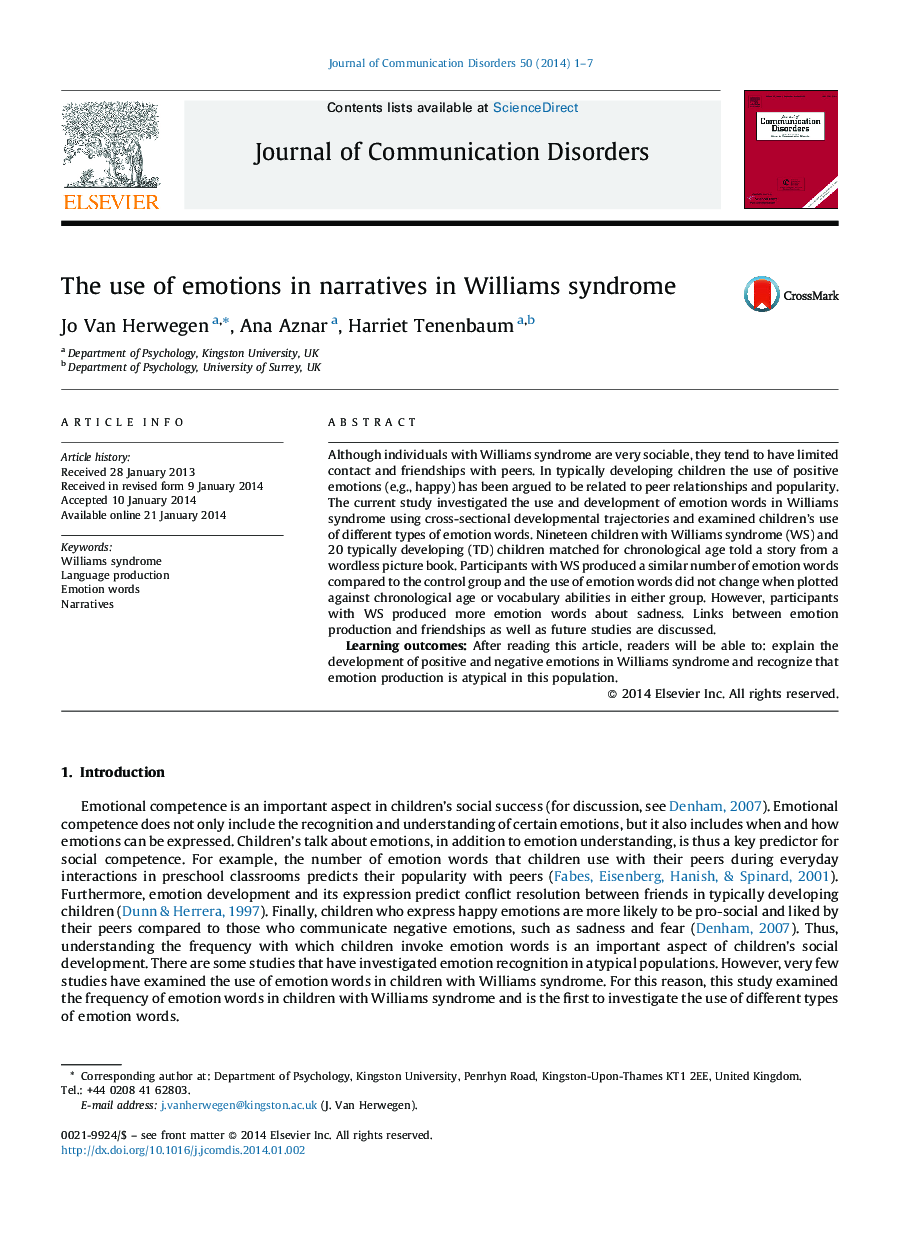| کد مقاله | کد نشریه | سال انتشار | مقاله انگلیسی | نسخه تمام متن |
|---|---|---|---|---|
| 910784 | 1473106 | 2014 | 7 صفحه PDF | دانلود رایگان |
• The use of emotions in Williams syndrome (WS) and age-matched controls was examined.
• There was no difference between the two groups for overall use of emotion words.
• There was no relationship between age and the emotions produced in either group.
• WS produced more emotions words of sadness, while controls produced more happiness.
• This shows that the use of emotion words in children with WS is atypical.
Although individuals with Williams syndrome are very sociable, they tend to have limited contact and friendships with peers. In typically developing children the use of positive emotions (e.g., happy) has been argued to be related to peer relationships and popularity. The current study investigated the use and development of emotion words in Williams syndrome using cross-sectional developmental trajectories and examined children's use of different types of emotion words. Nineteen children with Williams syndrome (WS) and 20 typically developing (TD) children matched for chronological age told a story from a wordless picture book. Participants with WS produced a similar number of emotion words compared to the control group and the use of emotion words did not change when plotted against chronological age or vocabulary abilities in either group. However, participants with WS produced more emotion words about sadness. Links between emotion production and friendships as well as future studies are discussed.Learning outcomes: After reading this article, readers will be able to: explain the development of positive and negative emotions in Williams syndrome and recognize that emotion production is atypical in this population.
Journal: Journal of Communication Disorders - Volume 50, July–August 2014, Pages 1–7
